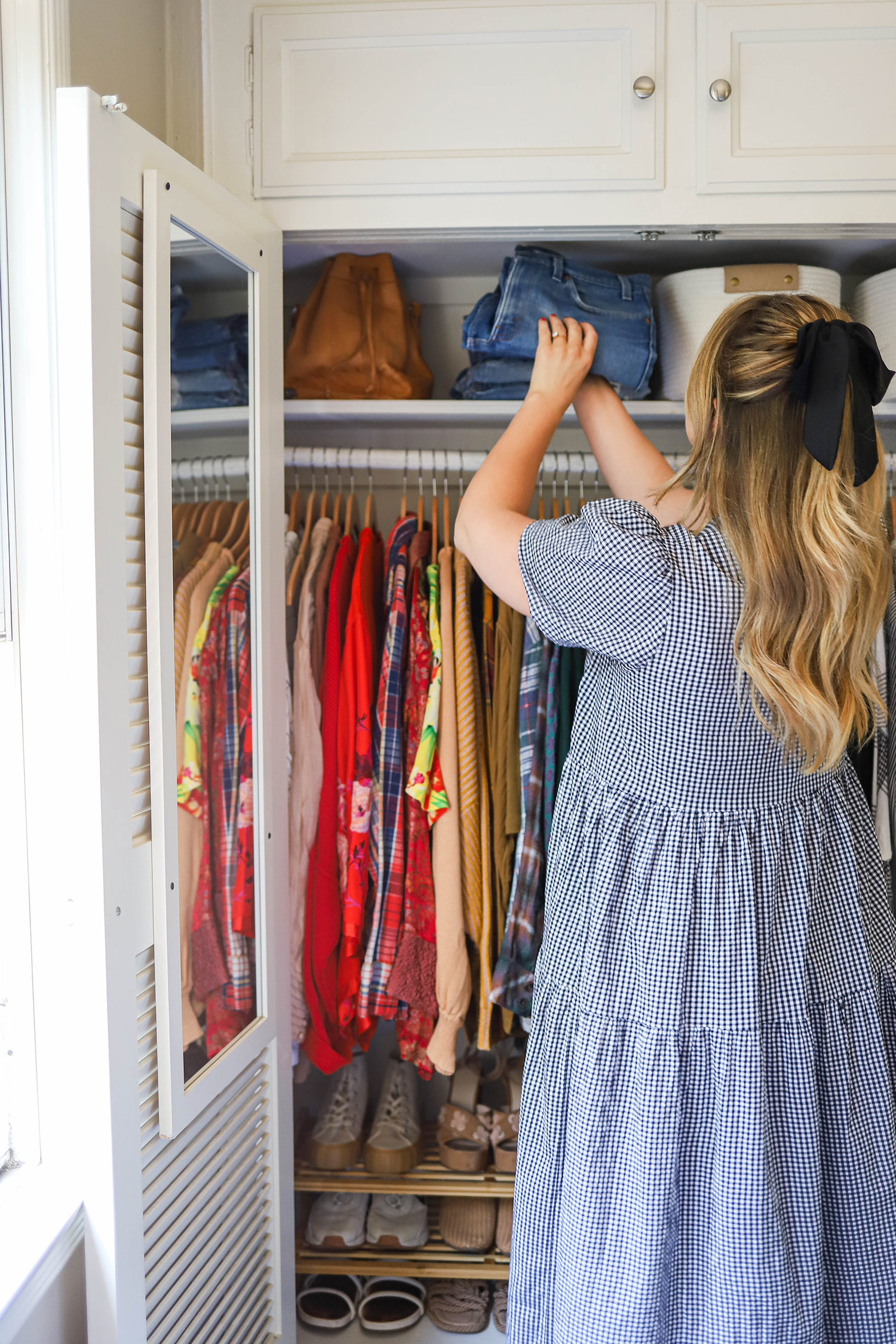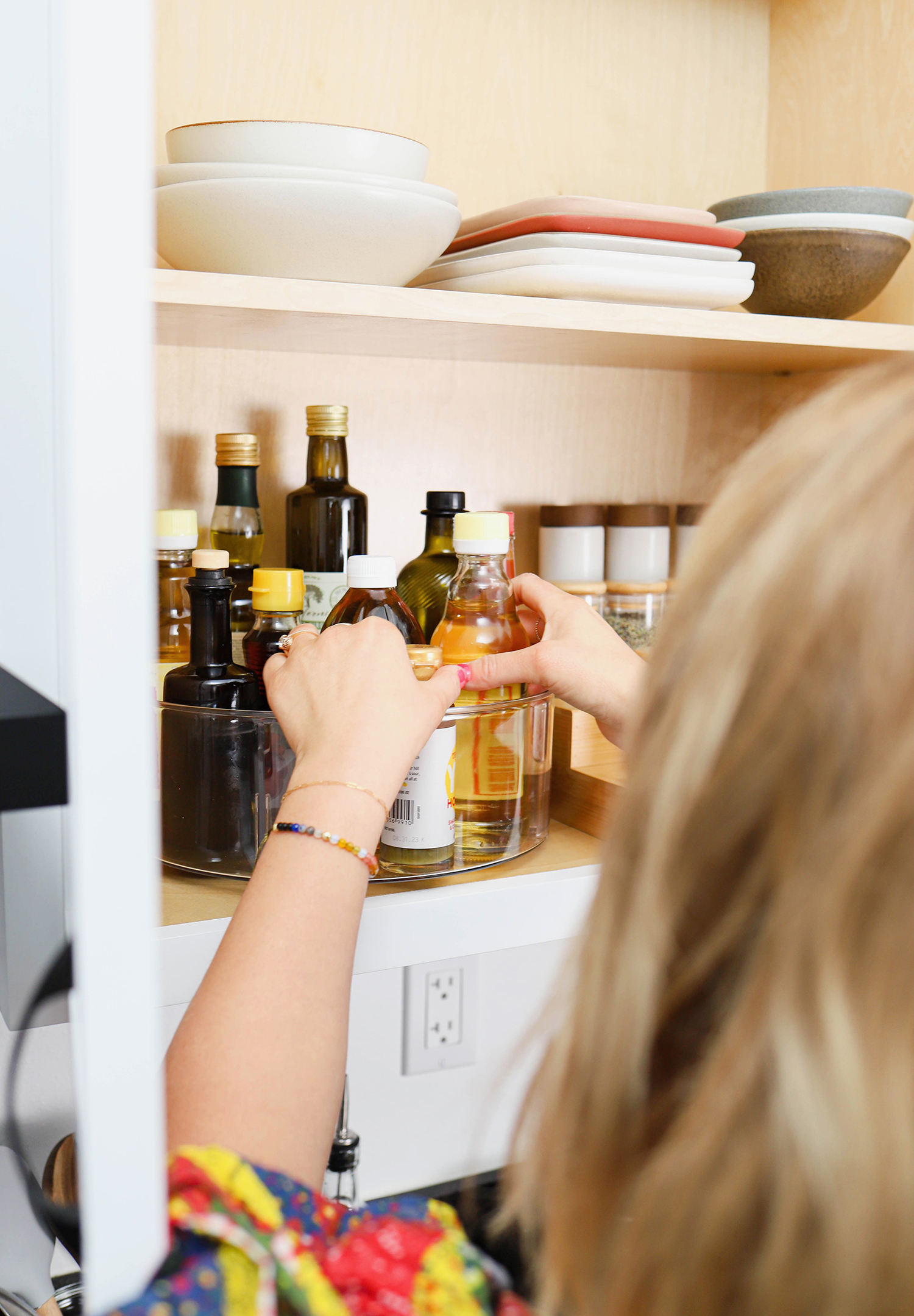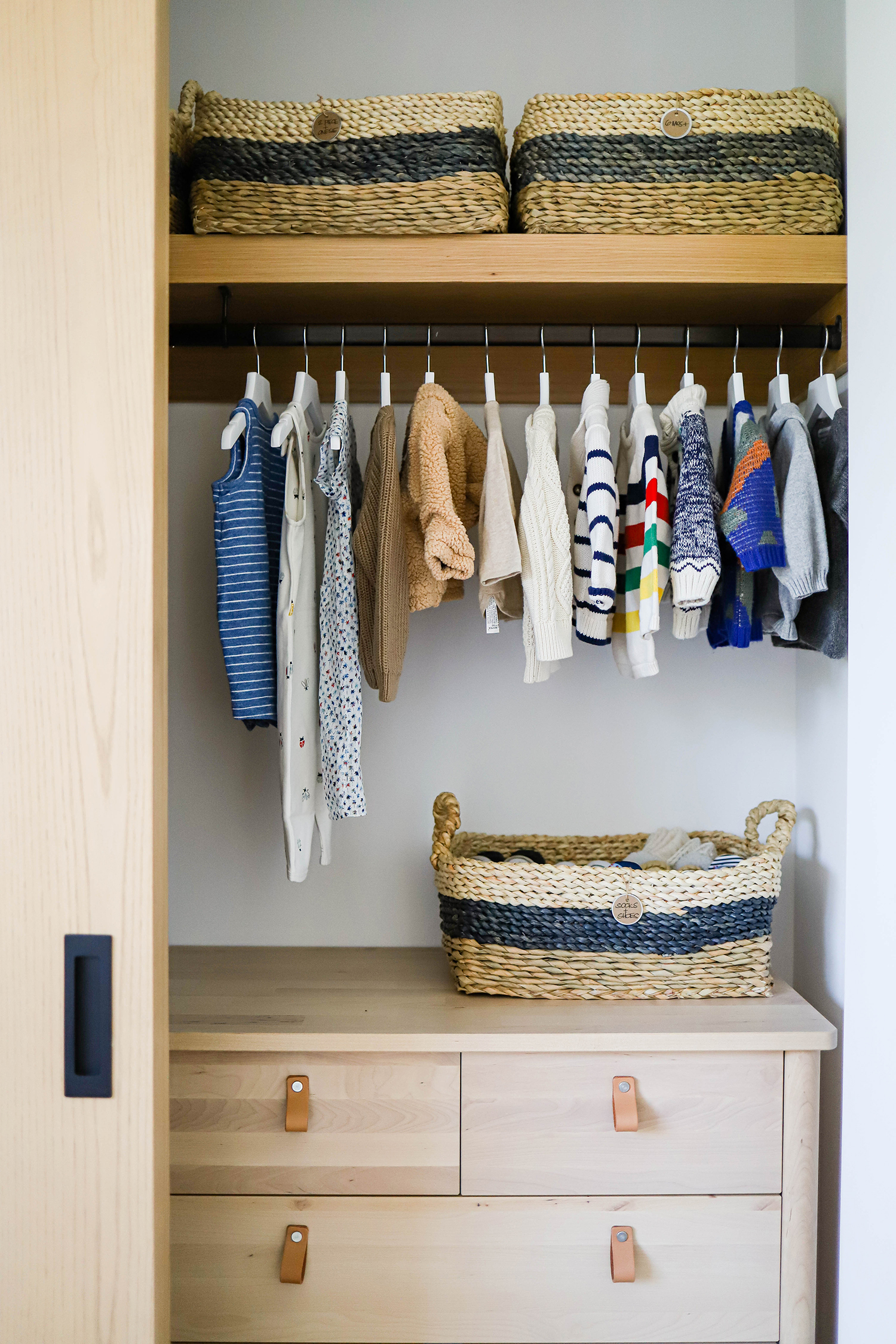
This Is the Biggest Mistake You Can Make When Organizing Your Home
A professional organizer tells all.

onurdongel/Getty Images
Finally mustering up the willpower to tackle a mess and get organized can be a gigantic step for some people. It can seem like an overwhelming, daunting process. Personally, I still haven’t had the motivation to organize my bedroom closet post-move and I’ve been living in my “new” place for almost six months now!
If you want to feel up to the challenge, Julianna Strickland, professional organizer and founder and CEO of Space Camp in Los Angeles, recommends starting small. “Pick a manageable space that you’re ideally excited about (or at least excited about it feeling better once you organize),” she explains. “That could be a section of your closet, your dresser drawers, your medicine cabinet, or maybe a snack area in your pantry. Set aside plenty of time to fully finish the area (usually a couple of hours is great). Once you finish a small space and see how great it looks and how good you feel after, you’ll be more motivated to keep working through your home.”

Juliana Slemenda
Getting started is one thing, but you also want to make sure your organizing strategy is a good one. First, you don’t want to bite off more than you can chew, aka you don’t want to start the task, tear the whole space apart, and realize you actually don’t have the time to complete the project. Make sure you have enough time to put together a plan and implement it.
And when it comes to that plan, Julianna says one big mistake she sees people do is shopping for containers before they have a clear goal or plan in their space. “It’s nearly impossible to know what is going to suit your space and needs the best if you haven’t taken the time to take things out and declutter first. My rule is to never, ever shop for containers first because you’ll end up buying things you don’t want or need,” she says.
If you’re ready (or almost ready) to get started, Julianna shared some tips you need to know so you can get things organized and keep it that way:
1. Take It Step-by-Step
Julianna says they have a five-step system at Space Camp: Sort, Clean, Plan, Reset, and Maintain. “Before you start, you want to identify a manageable space to organize and create clear goals for the space. I always encourage clients to start with a problem they’re having and then develop their organizing plan based on a solution for that specific problem,” she explains. “Instead of just having the goal of, ‘I want to organize my pantry,’ a more specific, solution-based goal could be, ‘I want to be able to see everything in my pantry clearly to avoid purchasing duplicate items.’ If you have a pain point in mind when you’re organizing, you will always make smarter decisions that will be easier for you to maintain in the long run.”
When it comes to sorting, she recommends taking everything out of the space and organizing things by category—and don’t forget to keep a trash can, recycling bag, and a box for donations nearby. If you can’t decide if you want to toss or keep something, don’t stress too much about it; it’s okay to keep it for now and then decide later. Once you’ve sorted everything, put everything into categories. The cleaning phase can be a quick wipe-down of surfaces.

Juliana Slemenda
2. Reset the Space
The fourth step in the Space Camp system is “reset,” which Julianna says is when the magic happens. “This is where you look at your empty space and start formulating an organizing plan. You look at everything you’re wanting to keep and you revisit your goals from the beginning,” she explains. “I like to think of the game Monopoly here: You want to pair your most valuable spaces (eye-level shelves, easy-to-reach drawers, and super accessible cabinets are your Boardwalk and Park Place) with the items you use the most. Things you use less often can go on higher shelves or in spaces you’re less likely to access frequently (less valuable real estate). You also want to store items by category as much as possible.”
She say that this part of the process can be a puzzle, so you’ll want to be patient with yourself and try things out.

Juliana Slemenda
3. Keep Things Corralled in the Meantime
If you followed Julianna’s advice of not buying containers right away, you’re probably wondering what to do with all the sorted and categorized items when you’re finished. It might take some time to get those containers, or you might shop around for the right ones. Julianna suggests using empty containers, baskets, or shoeboxes that you might have at home to contain things in the meantime. “You don’t want all of your hard work to become undone, so also make sure you use masking tape and a Sharpie to temporarily label all of the categories so things can stay tidy and organized until you can implement your new products,” she adds.
4. Find the Right Balance
Once you get a plan in place you might feel so excited to do a container shopping spree, but just remember there is such a thing as too many. It’s all about finding the right balance and number for you because too few containers mean your categories might broaden and the space won’t stay tidy, and too many might mean you’re making your organizing systems too complicated.

Juliana Slemenda
5. Set Aside Some Free Space
Julianna’s number one tip for maintaining all of your hard work is keeping 20% free space when you’re organizing. She says it makes maintenance easier because you have wiggle room to grow and change.
6. Pick up Some Good Habits
Once you have your system in place, get into the habit of sticking to it and putting things back right away. “Labels magically have a huge impact on helping to rewire your brain to learn and adhere to a new system,” Julianna says. “When you organize your space you might think, ‘Oh I’ll definitely remember that this is my pasta basket…’ but I promise you that writing ‘pasta’ on it will help you and everyone in your household to keep the system up.”

Juliana Slemenda
7. Do Some Maintenance Organizing
If your system is working for you, you won’t have to re-organize. But if you do notice a container or category is getting overloaded, take a few minutes to go through the five-step process again. It’s mini maintenance that will save you from doing a bigger re-organizing project in the future.
Products to Shop:
We only recommend things we love. If you buy something through our site, we might earn a commission.
Read the Current Issue Here!
Get one year of Sunset—and all kinds of bonuses—for just $29.95. Subscribe now!
